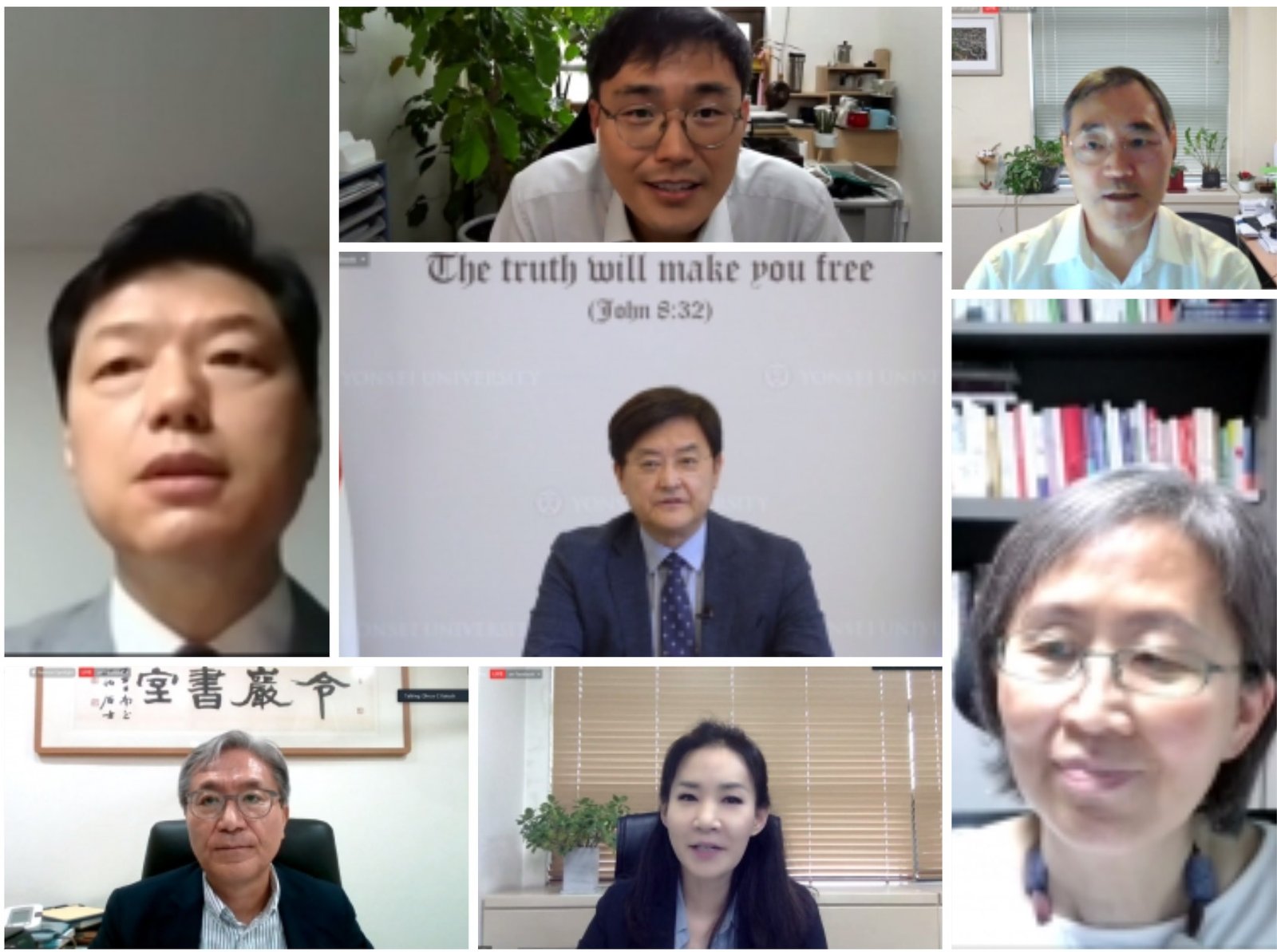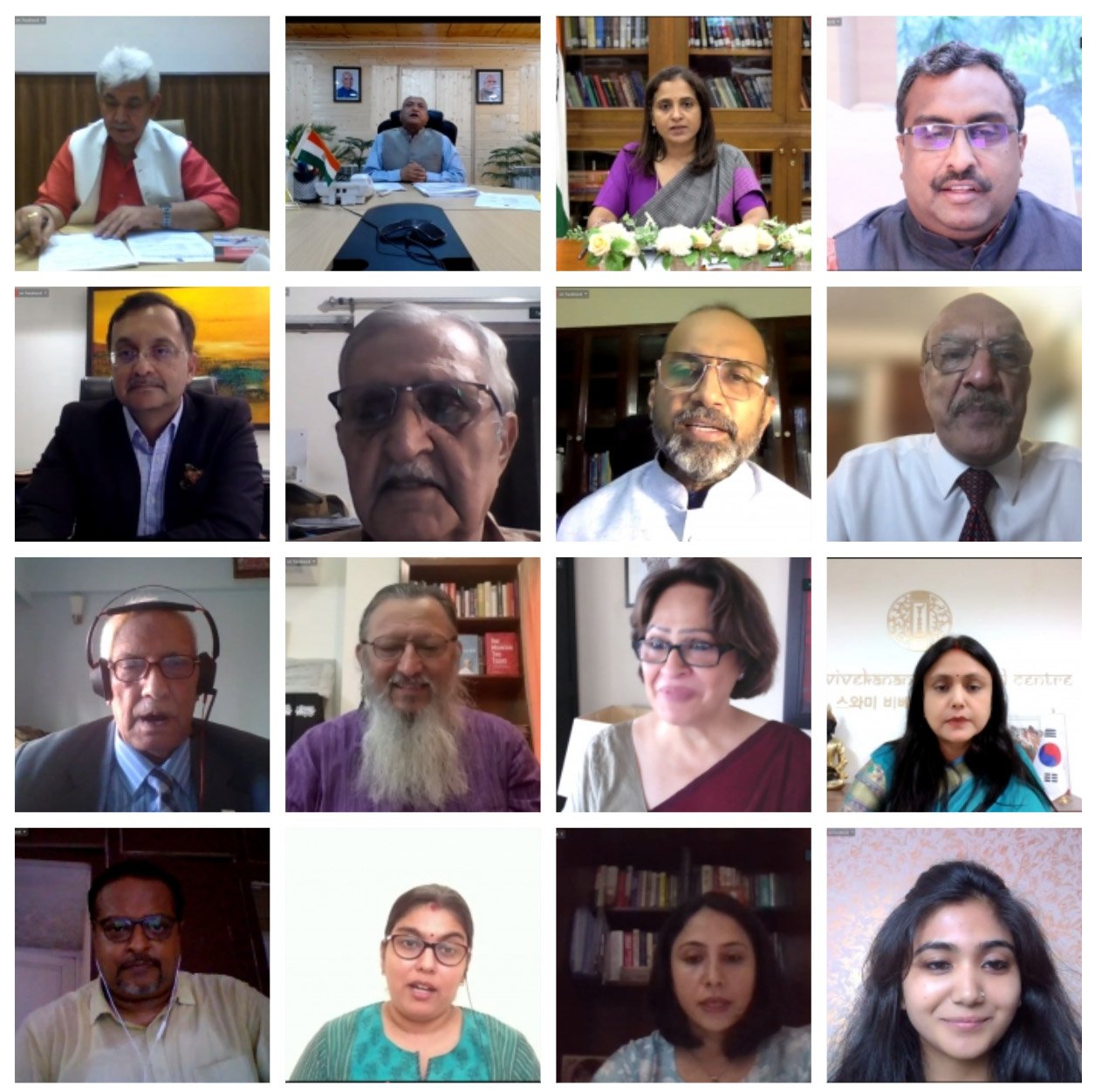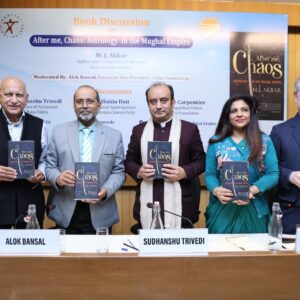Report of the
INTERNATIONAL SYMPOSIUM
on
Jammu & Kashmir and Ladakh:
Developmental Dynamics and Future Trajectories
23-24 August 2021
Organised by:
Swami Vivekananda Cultural Centre, Embassy of India, Seoul
Institutional Partners:
Institute of East and West Studies, Yonsei University,
Indian Council for Cultural Relations, India Foundation and
Jammu-Kashmir Study Centre
India, in its journey of nation building and democratic consolidation in the last seven decades, has faced and overcome several challenges. One of the most complex issues has been the situation in Jammu & Kashmir and Ladakh. The erstwhile State has been witness to several conflicts in the post-independence years. This pristine land, truly known as ‘’Heaven on Earth’’ is also an epitome of India’s secular identity, comprising as it does – Hindu majority Jammu, Muslim majority Kashmir and Buddhist majority Ladakh.
On August 5, 2019, the Indian Parliament enacted legislation to re-organise the erstwhile State of Jammu & Kashmir into Union Territories of Jammu & Kashmir and the Ladakh. Thereafter, a slew of legislation and policy measures have been introduced to accelerate the pace of socio-economic development in the two Union Territories to bring them to the same level of progress as in the rest of the country. A three-tier system of grassroots level democracy has been established with the conduct of elections of the Panchayati Raj institutions including District Development Councils in 2020.
As India’s democracy turns 75 years old on August 15, 2022, we plan to celebrate this milestone by commemorating significant landmarks in the political history of India. The socio-political dynamics leading to the birth of the two young Union Territories of Jammu & Kashmir and Ladakh and its future trajectory would be one such significant landmark.

Republic of Korea (ROK) has a vast experience of developing the villages through its past movements like saemaul undong (new village movement) and also of trying to bridge the political and development gaps between its different regions, such as in the Gyeongsang and Jeolla provinces. Some of these vast experiences of ROK can be relevant for the political and development of the Union Territories of Jammu & Kashmir and the Ladakh. With the changes in the policy pertaining to investment, and other activities in Jammu & Kashmir and the Ladakh, a large number of opportunities for Korean companies are opened, particularly in the sectors of agriculture, horticulture, tourism development, hydropower, sports, and renewable energy.
Embassy of India, Seoul and Indian Council for Cultural Relations in association with Institute of East and West Studies, Yonsei University, India Foundation and Jammu-Kashmir Study Centre organised a Two-Day International Symposium on Jammu & Kashmir and Ladakh on 23-24 August 2021. The event was inaugurated by addresses from Radha Krishna Mathur, Hon’ble Lieutenant Governor, UT of Ladakh, Sripriya Ranganathan, Ambassador of India to Republic of Korea and Suh Seung-hwan, President, Yonsei University.
The first session was themed as ‘Historical Significance’. The session was chaired by Miseong Woo, Director, Institute of East and West Studies, Yonsei University and the speakers were K N Pandita, Former Professor & Member, Jammu-Kashmir Study Center and Myung-sob Kim, Professor of Political Science at Yonsei University. The second session was themed as ‘Evolving Internal Security Situation and Challenges’. The session was chaired by Aayushi Ketkar, Special Centre for National Security Studies, Jawaharlal Nehru University; Member, Jammu Kashmir Study Centre and the speakers were Soumya Chaturvedi, Senior Research Fellow, India Foundation and Jae-sung Choi, Professor at the Department of Social Welfare at Yonsei University.
The third session was themed as ‘Development Models and Unique Socio-Cultural Ethos’. The session was chaired by Major General Dhruv C Katoch, Director, India Foundation and the speakers were Smriti Kak, Journalist, Hindustan Times and Doowon Lee, Professor at the School of Economics, Yonsei University. The fourth session was themed as ‘New Growth and Developmental Models’. The session was chaired by Shakti Sinha, Honorary Director, Atal Bihari Vajpayee Institute of Policy Research and International Studies, MS University; Distinguished Fellow, India Foundation and the speakers were Dipankar Sengupta, Professor of Economics at the University of Jammu and Sangtu Ko, Professor of Area Studies at Yonsei University. The fifth session was themed as ‘Quest for Gender Equity and Social Justice’. The session was chaired by Byung-won Woo, Director, Leadership Center, Institute of East and West Studies, Yonsei University and the speakers were Shakti Munshi, Secretary, Jammu Kashmir Study Centre (Mumbai) and Yoon-kyung Nah, Professor at the Department of Anthropology, Yonsei University and Director of Gender Equality Education Promotion Council of Korea.
The valedictory session was graced by the address of Manoj Sinha, Hon’ble Lieutenant Governor of Jammu and Kashmir; Ram Madhav, Member, Board of Governors, India Foundation; Dinesh K. Patnaik, Director General, ICCR, New Delhi; Jawahar Lal Kaul, President, Jammu Kashmir Study Centre and Captain Alok Bansal, Director, India Foundation.




